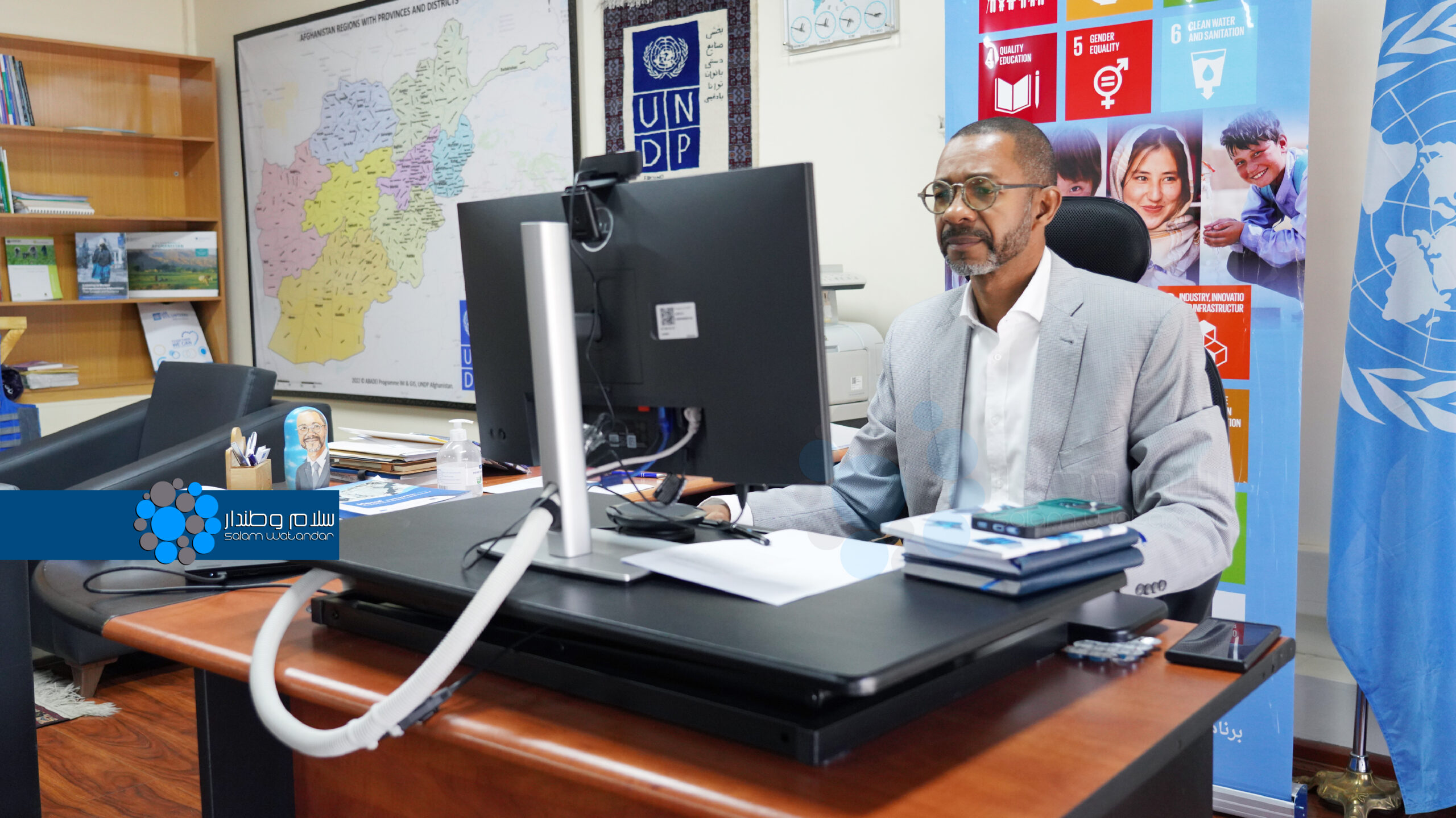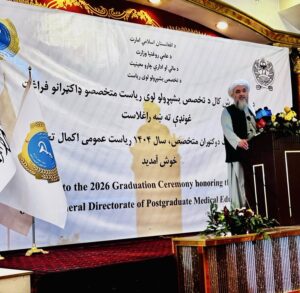KABUL (SW) – In an exclusive interview with Salam Watandar, Stephen Rodriques, the United Nations Development Program (UNDP) representative in Afghanistan said women played pivotal role in some of the fundamental improvements Afghanistan saw in the past few decades, and the recent restrictions need to end for welfare and development of the whole country.
Commenting on the state of affairs for the women entrepreneurs in Afghanistan, he said it was good to hear that Ministry of Economy of the Islamic Emirate had plead to facilitating more business license for women. He added it was just one area women are saying they need more support. “… they are saying the cost and fee of these licenses is too high, and again there are movement restrictions impede them,” Mr. Rodriques said.
Mr. Rodriques added that to do certain administrative process, women need a “Mahram”. “… if they need to travel they have to bear cost of two persons and of course the movement restrictions as well, which is not good for business. If you do business, you have to be able to move freely; this is inflicting heavy cost on the business that women are running across the country. We simply need to find a way to remove these restrictions,” he said.
The UNDP country representative said Afghanistan has seen an array of developments in the past couple of decades in maternal mortality, in infant mortality and in literacy rate. “Women were behind that and played a critical role in advancements Afghanistan has seen during the decades. Now currently ,these women businesses that we support they play a critical role in the community”.
The UNDP representative in Afghanistan said the future of women entrepreneurs is connected to future of the economy.
He said: “We expect practical stability in Afghanistan, we expect the economy to stabilize and hopefully in the future begin to grow, and also it is great to see that there is security at present because without security, businesses cannot thrive; people need security to be able to travel and to do business in different parts of the country. Those elements are in place, and we see some positive signals. We also heard from women entrepreneurs in the reports that 66% of them said their businesses are beginning to grow so that is a positive thing. We have the reasons to be optimistic but of course, the restrictions are still on women unless those are removed, and the women business can grow rapidly – our experience shows that the economies grows faster when women are allowed to work and when we don’t have such kind of restrictions.”
Last month, the World Bank announced that a grant in the amount of $16 million from the Afghanistan Resilience Trust Fund (ARTF) was approved to support financing for micro and small enterprises in Afghanistan, with a focus on women and women-led businesses.
Stephen Rodriques welcomed the latest World Bank grant for women entrepreneurs in Afghanistan. “The additional investment will complement the existing programs and initiatives of the UNDP and we welcome it. This will have to create more jobs in the economy and there will have more women-led businesses to grow and to survive, and I want to applaud the world bank for making this investment for women-led businesses of the country,” said the UNDP representative in Afghanistan.
Responding to a question, he said the UNDP study found that the majority of 60% of women are sole breadwinners for their families and sole earners for their family when their husbands died during the conflicts. “So, when we support those women, we are supporting their families as well and we are supporting the local economy as well. We should not think this is just of support for a few women, we are doing something that create a lifeline and a major opportunity for families, for households and wide across the Afghanistan,” he commented.
Mr. Rodriques stressed there are unique challenges that women face and the UNDP is putting a particular emphasis on supporting women because they have a lot more barriers and obstacles than men.
“In terms of what we are focus in trying to ensure they are having access to capital whether it is grants or credits from the banks; we are trying to ensure they are having better access to the markets within Afghanistan and also regional markets. We are providing them training train to build their capacity, we are supporting women business associations and networks, we are supporting them to attend trade fares in different countries. It is just to put a lot of support to create the enabling environment so these businesses can grow and create more jobs for them,” he said.

As per the UNDP report “Listening to the Voices of Women” out of the 49 women participants, some 36 said they were facing discrimination when they try to do business with banks or with other business owned by men they face discrimination. “It makes it difficult for them to access loan and in the study, we found only 5% were able to find loan and majority had to turn to family and friends,” said the UNDP country representative.
“A lot of the women in this study also told us that they could not access regional markets as well again because some of the private companies that they used to collaborate to export their goods, would not do business with them,” he added.
Mr. Rodriques stressed that the UN was engaging with the de-facto authorities at political level addressing those issues of the restrictions imposed on women and having a dialogue to see if they can get to a place when those restrictions are removed.
“For us in the UNDP, our primary focus has been on women businesses and we have supported in the last two and a half years 75000 women small, medium and micro enterprises across Afghanistan. Now, those 75000 businesses have created 900000 jobs and more than 80 % of those new jobs went to women – so we are supporting women who are creating jobs for other women and this is supporting over 5 million families across the country,” he added.






